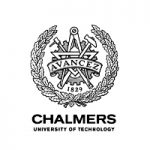项目介绍
An Integrated Student Experience
The Graduate School of Arts and Sciences (GSAS) at Harvard University provides exceptional opportunities for study across the depth and breadth of the life sciences through the Harvard Integrated Life Sciences (HILS) federation. Whether you are interested in conducting research on virus structures at the atomic level or on environmental impact in large ecosystems, you will find a good fit for your academic goals through HILS.
The HILS federation is comprised of 14 PhD programs of study across four Harvard faculties—Harvard Faculty of Arts and Sciences, Harvard T. H. Chan School of Public Health, Harvard Medical School, and Harvard School of Dental Medicine. HILS offers flexibility, including options to take courses, do laboratory rotations, and even choose a dissertation advisor from across the HILS federation, subject to specific program requirements and lab availability. However you customize your training, HILS is with you every step of the way.
Choosing a Life Sciences Program
While HILS students can access training resources and facilities from across Harvard University, individual PhD programs vary in their areas of focus, size, curriculum, and degree requirements. The research environments also vary. Some programs offer research opportunities in one of the many Harvard University-affiliated hospitals while others offer research opportunities at Harvard’s world-class museums. Your application will be stronger if you plan ahead and tailor your application to the program(s) that most closely fit your academic interests. Before applying, we recommend that you:
- Explore each program’s website (listed below).
- Use the HILS faculty database to explore the research interests and program affiliations of the 700 HILS-affiliated faculty at Harvard. (Please note: the HILS Faculty Database is currently under construction during summer 2021. Consult program websites and/or contact hils@fas.harvard.edu if you need assistance identifying HILS faculty during this time.)
- Carefully review application requirements on the GSAS website.
HILS Programs
BIOINFORMATICS AND INTEGRATIVE GENOMICS
The Bioinformatics and Integrative Genomics (BIG) PhD program emphasizes computational analysis and mathematical modeling of data, including the integration of clinical and population data from electronic health records. BIG provides graduate students with the tools to conduct original research and the ability to develop novel approaches and new technologies to address fundamental biological questions.
BIOLOGICAL AND BIOMEDICAL SCIENCES
The PhD program in Biological and Biomedical Sciences (BBS) offers a broad choice of research topics and labs. The program is sub-divided into nine research communities: Biological Chemistry and Molecular Pharmacology; Cancer Biology; Cell Biology; Developmental and Regenerative Biology; Genetics; Human Biology and Translational Medicine; Microbiology and Immunobiology; Stem Cell and Regenerative Biology; and Therapeutics.
BIOLOGICAL SCIENCES IN DENTAL MEDICINE
The Biological Sciences in Dental Medicine (BSDM) PhD program provides interdisciplinary training in the biological processes that provide the intellectual basis for dental medicine. This program is appropriate for students who already possess a DMD, MD, or have been admitted to the DMD program at the Harvard School of Dental Medicine.
BIOLOGICAL SCIENCES IN PUBLIC HEALTH
The PhD Program in Biological Sciences in Public Health (BPH) emphasizes interdisciplinary basic research spanning from molecular biology to human populations. BPH students develop individualized research projects focused on defining the molecular underpinnings of human health and disease by employing cutting-edge approaches in biochemistry, cell biology, genetics, genomics, metabolic biology, physiology, immunology, biophysics, computational and systems biology, and bioengineering. A central goal of the research in this program, whether basic or translational, is the improved understanding, prevention, and treatment of the most common and impactful global health threats.
BIOPHYSICS
The PhD program in Biophysics trains students with strong quantitative skills for independent research careers in which the concepts and methods of physical science are applied to the solution of biological problems. The Biophysics curriculum provides an introduction to five diverse areas of biophysics: structural molecular biology, cell and membrane biophysics, molecular genetics, physical biochemistry, and neuroscience.
CHEMICAL BIOLOGY
The PhD program in Chemical Biology combines the rigor and quantitative aspects of traditional chemistry and biochemistry programs with the excitement and medical relevance of modern molecular, cellular, organismic, and human biology. The Chemical Biology program equips PhD candidates with the experimental and theoretical knowledge to use chemical tools to understand biological processes.
CHEMISTRY AND CHEMICAL BIOLOGY
The PhD program in Chemistry & Chemical Biology (CCB) provides a rich training in the unique tools of chemical inquiry and a commitment to scientific investigation at the molecular level. Research and training opportunities are offered in many subdisciplines of chemistry, including chemical biology, inorganic, organic, physical, and theoretical.
IMMUNOLOGY
The Immunology program offers PhD students a sophisticated training in immunology, and exposure to the immunological and non-immunological problems of disease. Through multidisciplinary training, students are exposed to traditional fields of medical biology as well as to all major areas in the expanding field of immunobiology including transplantation, neuro-immunology, autoimmunity, stem cell biology, infection and immunity, and tumor immunology.
MOLECULAR AND CELLULAR BIOLOGY
The Department of Molecular and Cellular Biology (MCB) hosts the Molecules, Cells, and Organisms (MCO) graduate program that trains future leaders of scientific research in all areas of modern biology. Research and teaching in the MCO graduate program are organized along four tracks: Biochemistry, Chemical, and Structural Biology (BCSB); Cellular, Neuro and Developmental Biology (CND); Genetics, Genomics and Evolutionary Biology (GGE); and Systems and Computational Biology (SCB). MCB also hosts a program in Engineering and Physical Biology (EPB).
NEUROSCIENCE
The PhD program in Neuroscience (PiN) offers graduate students comprehensive training across the spectrum of neurosciences, ranging from cellular and molecular processes at the foundation of neural development and function, to integrative processing in the central nervous system, and mechanisms and treatment of human neurologic disease. Training is designed to support the next generation of neuroscientists to be able to draw from, synthesize, and advance the knowledge and experimental approaches born from fields spanning genetics, molecular and cellular biology, and biochemistry; from physics, computer science, and engineering.
ORGANISMIC AND EVOLUTIONARY BIOLOGY
The Organismic and Evolutionary Biology (OEB) PhD program is committed to training scientists who pursue a greater understanding of the structure, function, variation, and evolution of biological systems. Faculty and students examine significant biological processes that span a continuum from single cells to entire ecosystems, conducting field and laboratory studies that are key to understanding the evolution of organisms, how biodiversity is generated and maintained, how organisms work, and how organisms interact with their environment.
SPEECH AND HEARING BIOSCIENCE AND TECHNOLOGY
The program in Speech and Hearing Bioscience and Technology (SHBT) provides multidisciplinary PhD research training in basic, clinical, and applied approaches to the study and treatment of all aspects of human communication and its disorders. The strength of the program lies in its unusual coupling of knowledge and skills from acoustics, engineering, computer science, cellular and molecular neuroscience, psychophysics, cognitive science, linguistics, and clinical practice to understanding how humans communicate through speech and hearing.
SYSTEMS, SYNTHETIC, AND QUANTITATIVE BIOLOGY
The Systems, Synthetic, and Quantitative Biology PhD program engages graduate students in explaining how the higher-level properties of complex biological systems arise from the interactions among their parts. Students are trained to combine experimental and theoretical approaches to develop physical and quantitative models of biological processes relevant to important unsolved problems in biology.
VIROLOGY
The program in Virology provides students with opportunities to conduct graduate study for the PhD degree in a range of areas relating to this exciting field, including structural studies of viruses and viral proteins, studies of virus/host interactions and viral pathogenesis, use of viral vectors in gene therapy, interactions of viruses with the immune system, and rational drug design.
Applying to a Program Affiliated with the HILS Federation
All HILS programs strive for inclusive excellence, based on the belief that diversity in every dimension makes our programs stronger. While each program has its own admissions requirements and committee, all HILS programs take an integrated look at each application, holistically evaluating all aspects of the application rather than relying on any single factor to determine admission.
If you are interested in applying to a program affiliated with the HILS federation, be sure to review the specific application requirements for your program of interest and the general GSAS application instructions. GRE scores are not required by any HILS program, however, some do allow submission of scores if you choose to do so.
Applying to Multiple Programs in the HILS Federation
While prospective students are encouraged to carefully choose the HILS program that best fits their academic goals, interested applicants may apply to up to three programs and pay only one application fee. If you elect to apply to three programs, only two may be programs in the Division of Medical Sciences (these programs are Bioinformatics and Integrative Genomics, Biological and Biomedical Sciences, Immunology, Neuroscience, Speech and Hearing Bioscience and Technology, and Virology). The fee waiver for additional applications is ONLY available for those applying to multiple programs in the HILS federation. See Completing Your Application for information about fee waivers related to financial hardship.
You may begin and work on multiple applications through the application home page. Each application must be unique, containing a separate statement of purpose, transcripts, recommendations, and test scores. Please note that if you use the same recommenders for multiple applications, they must upload their letter of recommendation to each application.
After you submit your first application and pay the application fee, the fee will be waived for subsequent submissions.
You may submit a maximum of three applications to GSAS during the course of your academic career, which includes applications to multiple programs in the HILS federation regardless of whether you submitted them under a single application fee.
Enhancing Your Research Experience before Applying
We are looking for creative people from a variety of backgrounds who are passionate about the life sciences. Most incoming PhD students in HILS federation programs have enjoyed a previous research experience. GSAS and Harvard University offer a range of exciting and challenging summer research and internship programs designed to help current undergraduates boost crucial research skills.
LEARN MORE ABOUT RESEARCH AND INTERNSHIP PROGRAMS
A Diverse Scholarly Community
Different points of view are critical to life sciences research, where advancing knowledge often requires bringing a new perspective or approach to a problem. At GSAS, we strive to create an inclusive community where all students can thrive and grow academically and personally. The School is proud of its diverse community representing many races, ethnicities, belief systems, nationalities, physical abilities, genders, and sexual orientations and welcomes applications from all groups underrepresented in graduate education, particularly Black and African Americans, Hispanic Americans, Native Americans, and native Pacific islanders.
LEARN MORE ABOUT DIVERSITY AT GSAS
Why Choose Harvard?
GSAS offers PhD students guaranteed full financial support, including stipends and grants for tuition and health insurance. Funding for HILS students comes from a range of sources, including Harvard University, training and research grants, and student-won fellowships. In addition, GSAS and Harvard University offer a wealth of resources to support you academically and personally throughout your graduate experience.
- Professional development assistance for enhancing writing, research, and teaching skills and for planning academic and nonacademic career paths;
- Access to a large, vibrant, and diverse alumni network for mentorship, career exploration, and social, cultural, and intellectual engagement;
- Health and wellness services, such as comprehensive health care and a range of resources promoting physical and mental wellness;
- A community of inclusion fostered by GSAS and supported in part by GSAS Office of Diversity and Minority Affairs and the Accessible Education Office;
- Opportunities to connect with a community of students who share common interests and goals through graduate student groups such as GSAS Minority Biomedical Scientists of Harvard, Harvard Graduate Women in Science and Engineering, GSAS Harvard Biotechnology Club, and more;
- The GSAS Student Center, where students and faculty from multiple disciplines interact with one another and participate in activities such as dinners, discussion groups, language tables, dances, concerts, ski trips, and other outings.
联系方式
电话: (617) 495-1000相关项目推荐
KD博士实时收录全球顶尖院校的博士项目,总有一个项目等着你!






